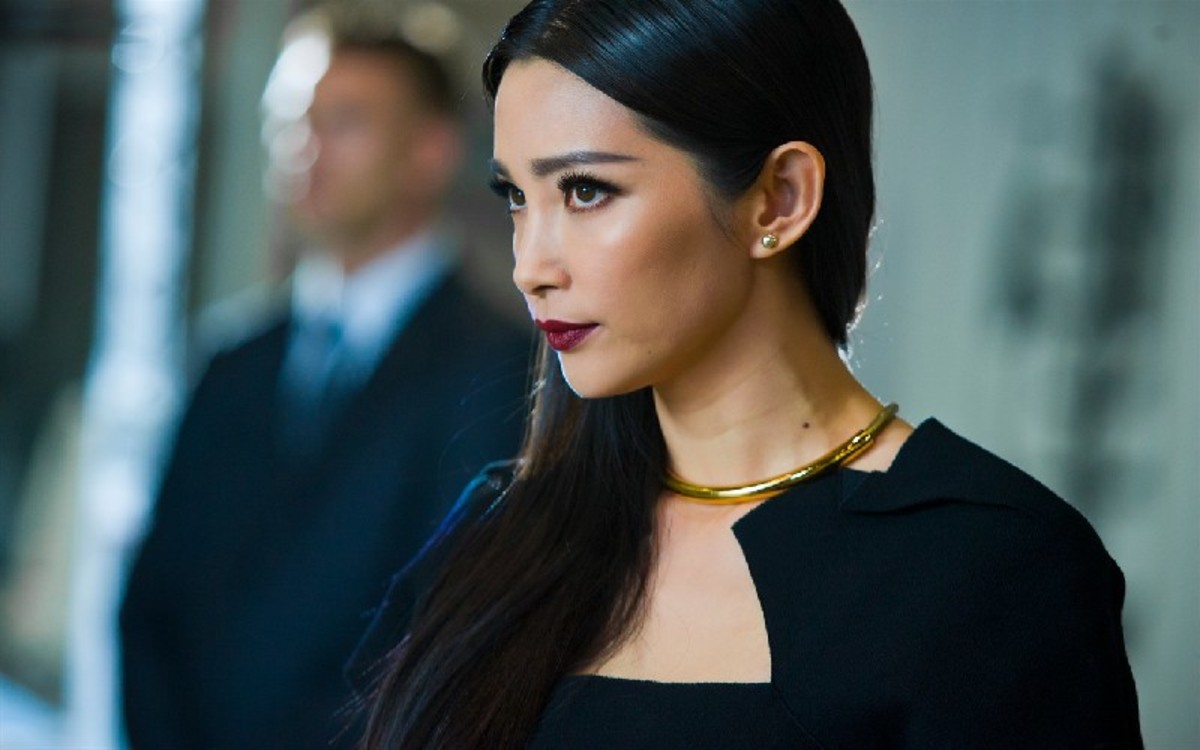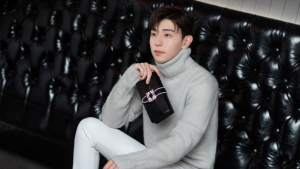Bilingual Chinese superstar Li Bingbing is set to play the female lead in The Realm of the Tiger, the first English-language film featuring a Chinese superhero, a project that brings Marvel godfather Stan Lee together with scrappy Shanghai independent Fundamental Films.
At a moment when Chinese-owned movie theaters are popping up all over the United States, there still are only a few Chinese actors known to the average American. Many blame the language barrier, but Li is one of the few to have tasted international success due in large part to her hard work studying English. Catch her films The Forbidden Kingdom, co-starring Jackie Chan and Jet Li; Transformers: Age of Extinction; and Resident Evil: Retribution, and know that when you hear her speak her second language, its polish on the road to Hollywood crossover at one time got a little boost from China Film Insider China correspondent Fergus Ryan.
Before Ryan joined the ranks of reporters covering the China-Hollywood dance, he was, briefly, Li’s English tutor. The following is the second in an occasional series of CFI Q&As with the “accidental tourists” of the Chinese film industry. Read our interview with the English tutor to the other famous Bingbing.
How did you first learn about Li Bingbing, come to meet her and become her English tutor?
I first learned about Bingbing from a colleague of mine. I was working for an events and marketing company. We were working on some events around the build-up to the 2008 Olympics. My colleague used to work for her and had learned from her team that she was looking for a foreigner to teach her English. She lined up an interview for me. I met Bingbing and her sister Li Xue and we discussed what she was looking for. There were a few reasons why they wanted a foreigner on the team. Number one, they wanted to improve her English language ability. Number two, they were very consciously trying to get her more involved in charitable and philanthropic work. They thought it would be helpful to have a foreigner who could contact foreign NGOs and UN agencies and try to get her some sort of a position at one of these organizations.
At what point were your assumptions about Li shattered?
I didn’t really have any idea who she was before I met her. In fact, at that very first meeting I remember her parting words were something along the lines that I shouldn’t mistake her for “the other Bingbing.”
If I had any assumptions about her they were shattered the next time I met her. It was at a restaurant in Beijing with the rest of her team from Huayi Brothers. It was a welcome dinner for me. When Bingbing arrived I was expecting her to be over the moon—she had just won the Golden Horse award in Taiwan. But the bonhomie of the evening came to an abrupt end when she admonished everyone there for being too pleased and resting on their laurels too soon. She gave a speech about her journey from some anonymous village in Harbin and how she had to struggle to get to where she was. It was my first insight into the real character. And that real character is not all that different to the image she has in the Chinese media. If you were to summarize that image that she has in the Chinese media it would be that she is a workhorse and she has something of a rags-to-riches narrative to her life. There is focus and a drive that she has that, as a part of her team, you have to recognize and try as best as you can to keep up.
Describe the two sides of Li Bingbing, the public and private.
Fundamentally there is little substantial difference between her private and public personality. Perhaps surprisingly for a movie star, Bingbing is quite introverted. When we worked on films together sometimes other actors, usually from the United States, were surprised that she didn’t go out with them or socialize very often.
Maybe one example of there being a difference between her public and private personality showed up when she got more involved in NGO and charity work. There was a gap between what she was advocating for and what she really knew herself. But I think that is just normal for anyone doing that sort of thing. There was a learning curve that she had to climb.
I remember the first time I gave her an English lesson. She was wearing one of those face masks that are supposed to be good for your skin I’m not sure what they’re called. It was a very silly situation and I found it very difficult not to laugh. Anyway, we were talking about environmental issues and what sort of policies would be good to solve some of the problems that the world is having in relation to the environment. And I remember she said to me that what we really needed was a strong man to decide what should happen. So it was in that first lesson that I taught her the words “Hitler” and “fascism.”
But over time she became more involved with this sort of environmental advocacy. I negotiated for her to become an Earth Hour Ambassador for the World Wildlife Fund and, as far as I know, she still is doing that to this day. Since I left her team she has gone on to work for a number of organizations, including UN agencies, and she has been at the forefront of anti-ivory campaigns. She’s even given a speech on climate change to the United Nations in New York.
I guess another difference between her private and public personality is the same as you’d get with any celebrity in any country: while she would look absolutely stunning at the public events we’d go to—shock, horror—she would look “just like us” when at home.
Did you fall for her? Did she win you over?
She was certainly flirty from time to time, and as a young man that was interesting to deal with. There was one incident that I’ll never forget. We were filming Detective Dee, directed by Tsui Hark, down in Hengdian. We had just started an English lesson and she was complaining to me about a pain she was feeling in her chest. At first I thought she was making some excuse so she could avoid the lesson. But after a while it became clear that something was really wrong. So wrong that an ambulance had to be called and she was rushed to the nearest hospital. It turned out that about 70 percent of her left lung had collapsed. To this day we’re not sure what exactly happened. One theory was that it had been punctured during an acupuncture session. Another theory was that it was the result of falling off a horse on set. She was in hospital for at least two days. She should have been in there much longer but there was huge pressure on her to get back to the set. The whole time she was there the paparazzi camped outside the hospital room. People at the hospital were leaking all sorts of details to the media. When it was time for us to leave I was handed a vase with flowers and had to follow her out. The paparazzi took their photos and video and the way the story was spun I had been turned into her “mysterious foreign boyfriend.” I think her manager played a part in this. It was at the top of the entertainment news for a week. To this day when I mention it to Chinese people a lot of them remember that story.
To answer your question: the way I explain it to people is I say that I think, in the end, I got Stockholm Syndrome. She really did expect loyalty, which I think is quite important when working for someone who is in the public eye. It takes a while for them to open up to new members of the team and feel comfortable with them and trust them.
After working with her for a couple of years that trust was there and I had become fiercely loyal to her. Because we worked together very closely almost every day there was a certain solidarity that we had as a team. In the end, I would probably describe the way I feel about her as if she were like an older sister to me. In fact, I was told that I should call her “Bing Jie” (Sister Bing), instead of just Bingbing, which is what I just naturally called her. By the end I was calling her Bing Jie like the rest of her team.
What did you teach Bingbing?
Bingbing is one of the few Chinese actresses who can act in Chinese and in English. I think that’s a huge advantage for her. And that was very much her and her team’s strategy from the outset. To make her truly bilingual so that she would have an even bigger chance of making it in Hollywood. But, I can’t take full credit for the English that she did learn because she really was a self-starter in that respect. She taught herself a lot of English on her own.






